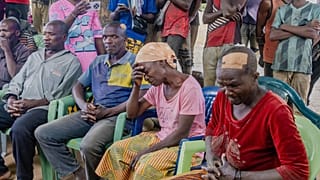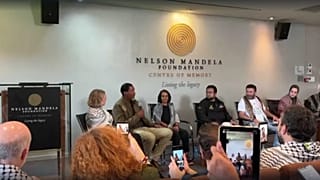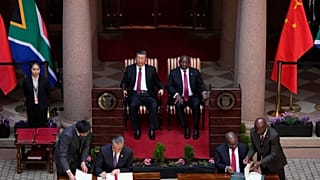Water
As many as 2.2 billion people still live without access to safe drinking water and 3.5 billion lack access to decent sanitation, according to a new United Nations report published on World Water Day.
“I think the situation is really challenging,” said Li Lifeng, Director of FAO’s Land and Water Division in Rome.
The UN report “Water for prosperity and peace” highlights that tensions over water are exacerbating conflicts worldwide. “(We) say without water, there's no life. Then without the water, there's no food. So water is the core, is the indispensable natural resources for sustainable development, for agriculture, for many different economic sectors.”
Among the countries most affected by water scarcity is Zimbabwe, which “has been facing drought since last year,” according to Lifeng.
He said there was a concerns about crop failure with more than two million in Zimbabwe potentially facing hunger.
Like some of its southern African neighbors, Zimbabwe is battling a devastating drought that aid agencies blame on El Niño and climate change.
The southern African country's staple maize harvest is expected to halve to 1.1 million tons in 2024 due to an El Nino-induced drought.













00:57
Experts warn famine conditions spreading in Sudan's Darfur region
01:01
UN warns Islamic State threat growing, situation urgent in West Africa, Sahel
00:58
Tens of thousands evacuated in northern Morocco amid heavy rainfall
01:14
UN to deploy ceasefire monitoring mission to eastern DR Congo
01:19
United Nations renews political mission in Haiti for another year
01:42
United Nations and IOC calls for pause in wars during Winter Olympics